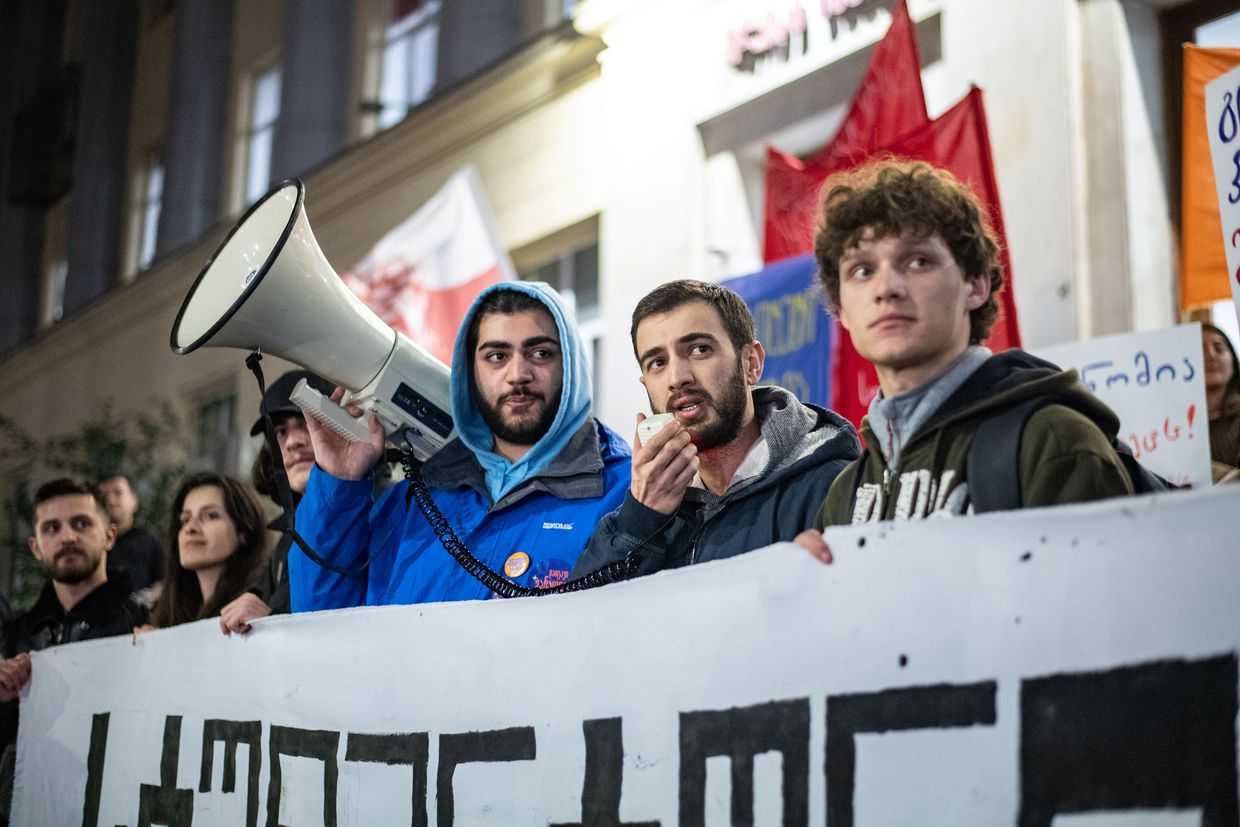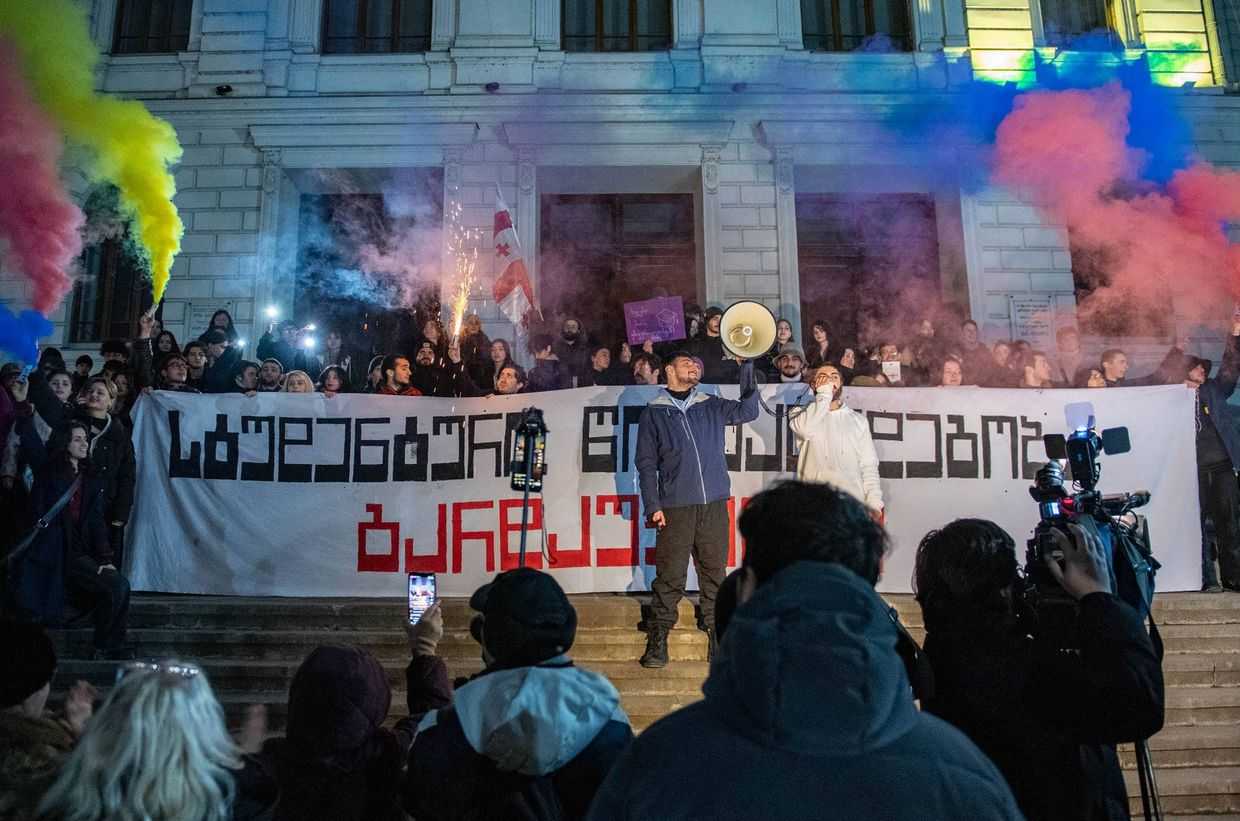
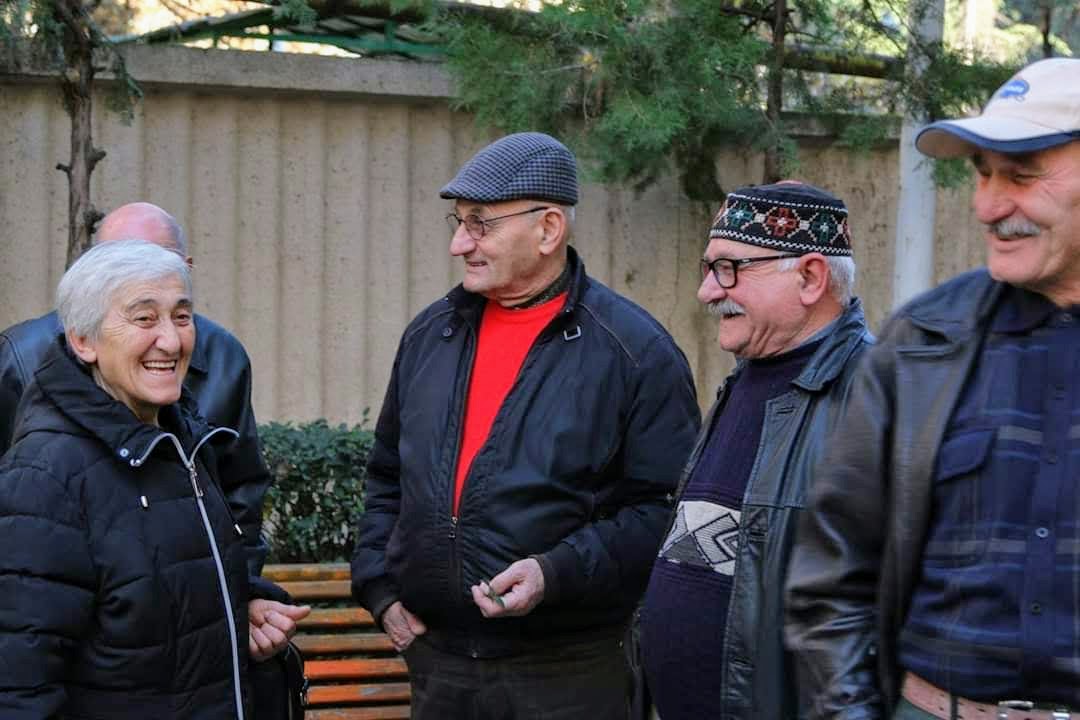
Fifty-six former employees of a nitrogen factory in Rustavi, a city 20 km south of the Georgian capital Tbilisi, have won back their jobs after a three-year legal battle with their employer, Rustavi Azot.
On Wednesday, the Supreme Court ordered the chemical fertiliser company to reinstate them to their previous positions and to reimburse their salaries for their three years of enforced idleness.
The 56 plaintiffs were among 350 of the chemical plant’s 2,000 employees who were laid off on 25 January 2017 by the company’s new management.
Their sudden dismissal, with many discovering they had lost their jobs only when they showed up to work on 27 January, led to large protests outside the factory and in Tbilisi.
‘This is a big win for us and for the whole of Georgia — when 56 [ex-workers] win such a thing together’, Guram Iantbelidze, one of the employees to be reinstated told OC Media.
‘The compensation is secondary. They laid us off in a very offensive way.’
Iantbelidze, a 60-year-old IDP from South Ossetia, said his salary was ₾500 ($186) in January 2017.
‘I will definitely go back to work. The people there are enslaved, I want to fight for them too.’
‘We were 57 but, unfortunately, one lady passed away before we won’, he added.
Iantbelidze thanked the Georgian Trade Union Confederation and the young people who came out to the streets to support the workers in early 2017.
Tamar Surmava, a lawyer from the GTUC who represented the former employees in court, told OC Media that the 279 employees who did not pursue a legal remedy were compensated only ₾1,500 ($435 in 2017).
The ruling by the Supreme Court is final and cannot be appealed. It followed legal victories by the laid-off workers in both Rustavi City Court and the Court of Appeals.
OC Media has reached out to Rustavi Azot for comment.
‘It takes years for workers to find justice’
A large number of the 350 workers from Rustavi Azot who were laid off found out they had lost the jobs only after they showed up at work on 27 January and discovered their passes had been revoked.
The news was followed by large demonstrations outside the factory in the following days. On 2 February, workers were forcibly removed from the factory’s administration office.
Street demonstrations against the unlawful layoff continued for over 10 days, as the chemical workers were supported by unions, student movement Auditorium 115, and several Georgian rights groups.
The protest was also met with a solidarity campaign from IndustriALL Global Union, an international labour union federation.
Rustavi Azot claimed at the time that the factory’s new owners, EU Investments, were dealing with the ‘crisis’ but promised only that they would rehire the workers if they needed them in the future.
The company argued in court last year that the previous owner was responsible for the firings, not them.
EU Investments is owned by BGEO Group, the majority shareholder of one of Georgia’s two biggest banks, Bank of Georgia.
In early February, protests moved to Tbilisi targetting Bank of Georgia. The youth-led movement demanded the state intervene to protect the workers’ rights.
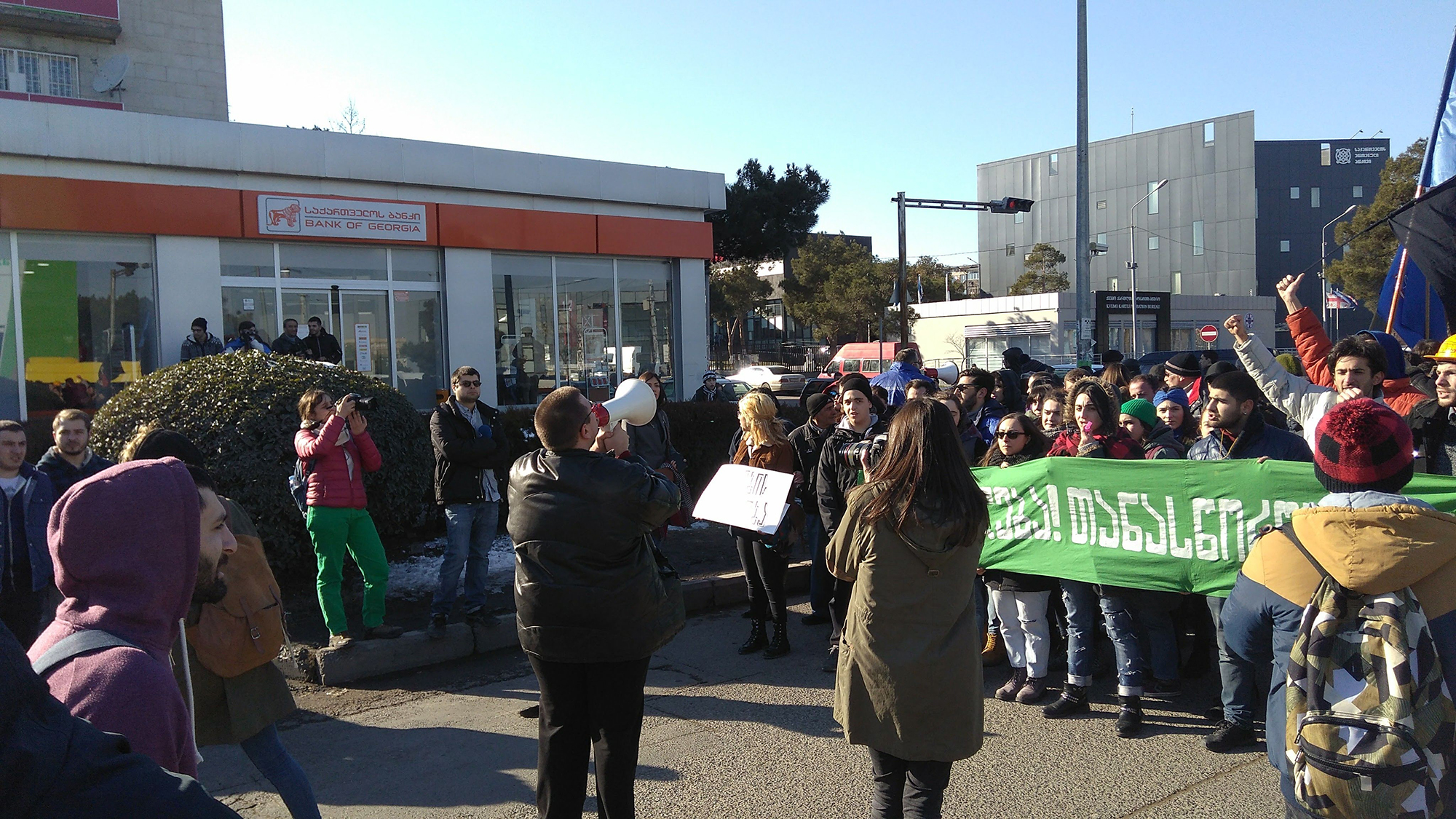
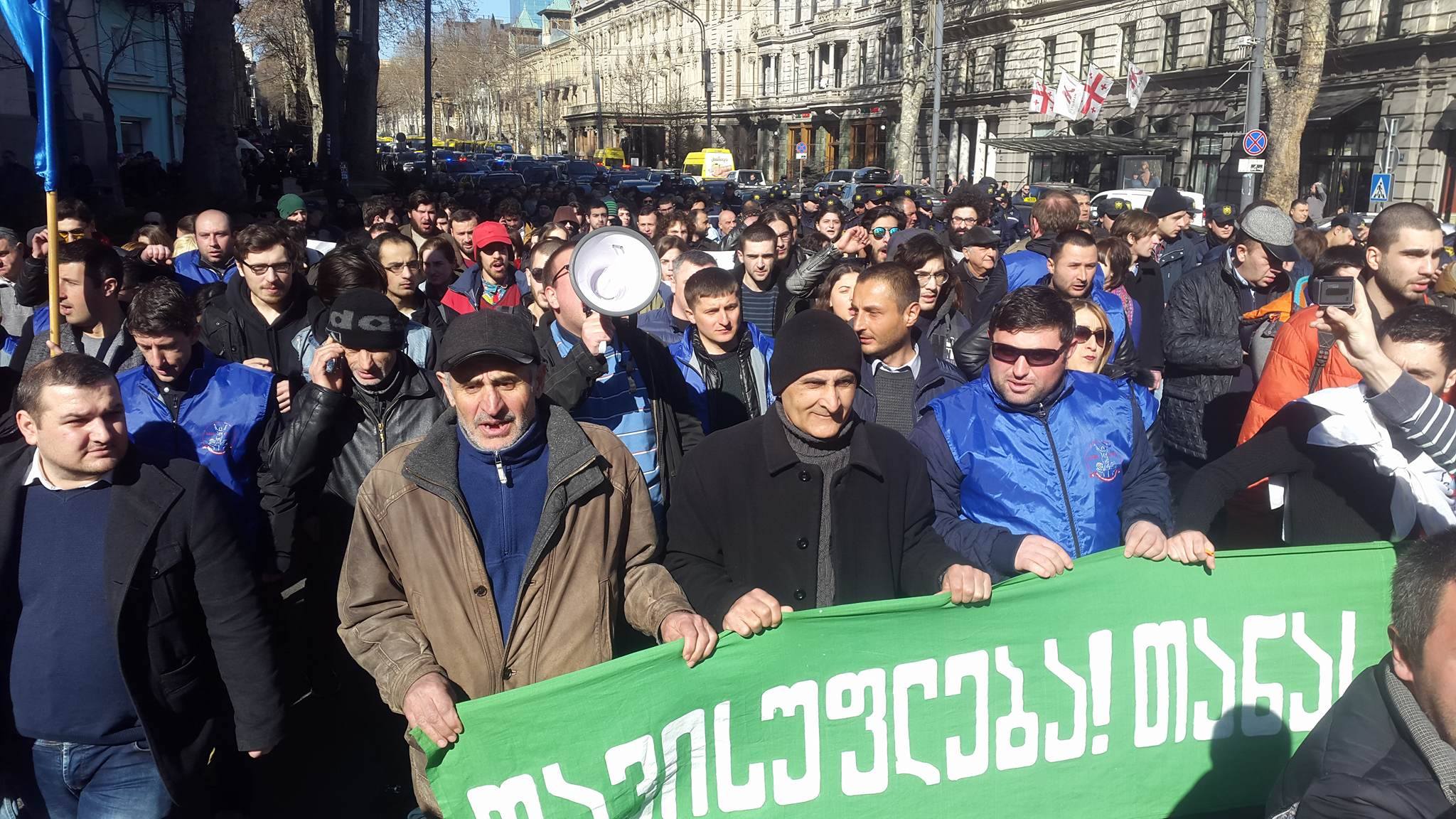
Levan Lortkipanidze, who was one of the leaders of the now-defunct Auditorium 115 group, welcomed the news and hailed the GTUC’s efforts, but added that it was ‘yet more testimony that it takes years for workers to find justice’.
‘There are many people struggling with poverty without a job on the background of protracted cases. And court rulings also can’t stop the terrible process of shrinking industries and foreclosures’, Lortkipanidze told OC Media.



